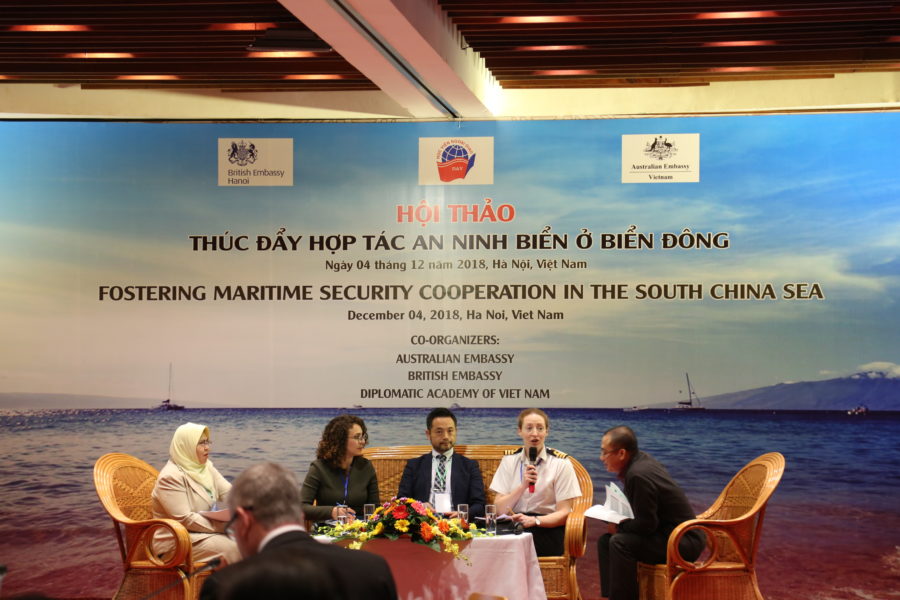12th December 2018 Hanoi
Maritime security cooperation and the importance of the rules based international system

Earlier this week, international experts came together in Hanoi to discuss maritime security. We were involved – the Embassies of Britain, France and Australia and the Diplomatic Academy of Vietnam – because, our four countries are maritime nations that rely on sea trade routes and freedom of navigation across the globe. The rules which constitute the law of the sea are complex, but they touch upon the lives of us all.
The goal of the maritime security workshop was, as an additional effort, to find ways to improve understanding and adherence to the law of the sea. Expert speakers joined from seven countries, with attendees from many more. The workshop focussed on three issues: sharing experience in maritime dispute resolution; a review of the legal framework for Maritime Law Enforcement Agencies; and how to enhance cooperation between agencies.
These legal issues have everyday implications. Trade is the lifeblood of the global economy. Rapid economic growth in Asia over the past 30 years would have been impossible without global trade, over 90% of which is conducted by sea. Freedom of navigation, freedom of overflight and an agreed set of global rules are therefore an essential basis for global prosperity, not just a subject of academic interest to lawyers.
In a world with over 190 countries, there need to be agreed ways of sharing access to and protecting the oceans and seas that link our countries. And when needed, there need to be ways to resolve differences of opinion. Maritime security is just one part of the rules based international system that safeguards the interests of all. On maritime issues, UNCLOS remains the cornerstone of the system
The multilateral approach to building a peaceful and prosperous world is under some pressure. At this time it is particularly important that we all find ways to demonstrate that the rules-based international system can find solutions to the biggest issues we face. Approaches based on fair and agreed rules are much better at delivering sustainable frameworks for cooperation and solving disagreements.
Our partnership in Hanoi this week has provided us with insight, understanding and recommendations on maritime security in this region. But it should also be seen as a wider vote of confidence in the rules-based international system that has provided the basis for the prosperity that this region has enjoyed in recent times.
ByBritish Ambassador to Vietnam Gareth Ward, Australian Ambassador to Vietnam Craig Chittick, French Ambassador to Vietnam Bertrand Lortholary and President of Diplomatic Academy of Vietnam, Associate Professor Nguyen Vu Tung